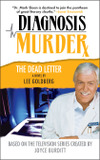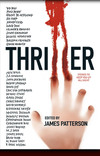Author J. Steven York talks on his blog today about the widely held notion that anybody who writes a tie-in is a hack. Among his observations:
We’re used to being dissed, even sometimes by our fellow writers. It
was exactly that situation that lead to the recent formation of the International Association of Media Tie-in Writers,
an organization created to promote and honor the writers engaged in
this challenging and under-appreciated area of publishing.Though I’m a member, I’ll be honest that I don’t know why it’s
necessary. Those of us in the business know the score, and I really
don’t care what the world-at-large thinks. My goal is to entertain my
readers with the best book I can produce, and enjoy myself in the
process.[…] most tie-in fiction is produced under battlefield conditions. No
waiting for the muse. No excuses (or none that your editor is likely to
care about). No delivering a book radically different from the one you
promised. It needs to be done. It needs to be done on deadline. It
needs to be done to specification. It needs to fit the package we’re
prepared to market. Does that hurt the quality of tie-in works? Sometimes, but less so than you’d think.
Sure, there are some lousy tie-ins and novelizations out there. But I’d say the ratio of good to lousy writing is about the same as you’ll find in popular fiction in general.
I look at tie-in writers as the literary equivalent of freelance writers on TV series. Every series uses freelancers but nobody inside or outside of the entertainment industry considers those writers hacks. That’s because freelancers are well-regarded showrunners between gigs or up-and-coming new writers contributing to a successful, on-going franchise. The same is true of tie-in writers.
If you look at some of the folks writing tie-ins, they include some of the most honored mystery writers in the field today (Max Allan Collins, Thomas Cook, and MWA Grandmaster Stuart Kaminsky come to mind). But, as J. Steven York point out, everybody has to pay the bills and, for some reason, that’s looked at as disgraceful in some writing circles.
I never fail to be amazed at the surreal and romantic notions that
people have about writers, publishing and "literature" (however you
want to define that last term). Publishing is a business, and it’s been "industrial" since the invention of movable type and/or the printing press.I don’t really know where the notion came from of the lonely, alcoholic
writer starving for their art, chiseling their masterpieces word by
painful word, stuffing the pages in a drawer for posterity.Fact is, its very difficult to find a writer who doesn’t at least aspire to
"pay the bills" through their works, even if that means publishing in
obscure literary magazines to support a academic career, or taking to
the lecture circuit to speak to the legions of people who would like to
pretend to have read your work.[…] Sell
more, sell better, write more, spend less time flipping burgers. It’s a
pretty simple formula that’s worked for a very long time. If you love
to write, you hope to sell.
The IAMTW was formed to celebrate the work of tie-in writers and educate people about who we are and what we do. We hope the 2006 Scribe Awards, honoring excellence in the tie-in field, will bring some positive attention to the writers of these bestselling — but underappreciated — works.
UPDATE 5-28-06: Author Keith R.A. DeCandido jumps into the fray:
The truth is that artists have always worked for money, just like
everyone else. The successful artists are the ones who had wealthy
patrons. The reason why art flourished in the middle ages is because
lots of wealthy people wanted art in their homes and it was considered
a noble profession — but it’s not like they were all independently
wealthy.Yes, we’re hacks. And we’ve always been hacks. Get over it.




